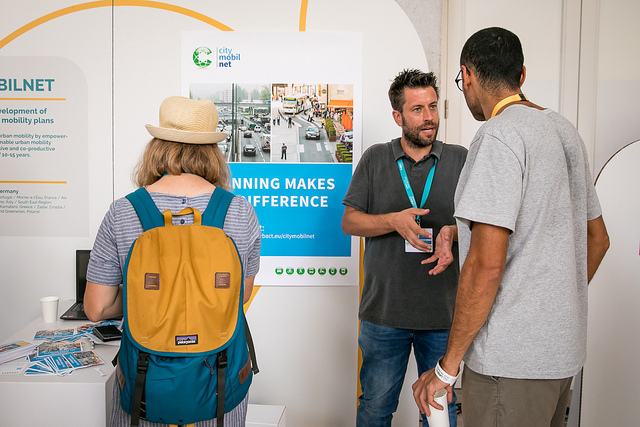Mobility planning is a key element of sustainable urban development, and one of the most prominent challenges for European cities today. The CityMobilNet project, funded through the European Regional Development Fund’s URBACT programme, brought together 11 European cities in 10 countries to pool knowledge and experience, learn together and, ultimately, set up sustainable urban mobility plans (SUMPs) for each city.
- 29 March 2021
We usually don’t get the community’s point of view, just their reaction after enforcing measures. URBACT was different: working with the people in the URBACT local group proved that good ideas can come from everywhere, not necessarily from specialists.
The city council of Bielefeld, Germany, led the URBACT action planning network that united stakeholders from Spain, Portugal, France, Italy, Malta, Greece, Croatia, Romania and Poland.
The participating cities analysed their existing urban mobility landscape; developed citizen and stakeholder engagement plans; and developed the skills and competencies to help them design, implement and evaluate their sustainable mobility plans.
Diverse and common challenges
Cities play a central role in countries’ growth and employment, and in the general quality of life and well-being of a large proportion of their citizens. But developing efficient transportation systems that can reduce congestion and greenhouse gas emissions, and decrease social exclusion, is challenging. While cities face many common problems, they also have a diverse range of local challenges.
To help the 11 cities develop sustainable urban mobility strategies, the project helped the cities draw up their own SUMPs. These are strategic plans with a 10-15 year timeframe, designed to satisfy the mobility needs of people and businesses and ensure a better quality of life, while taking into account diverse local needs.
Transnational learning and exchange activities
Over the course of the two-year project, five transnational meetings were organised so that partner cities could share experiences and knowledge. CityMobilNet organised exchange sessions to create a joint knowledge base, peer review exercises, present case studies from other cities, and workshops on developing sustainable mobility plans.
The project benefited from the 4th European SUMP conference, which was held in Dubrovnik, Croatia in March 2017, shortly before the project’s third transnational seminar in Zadar, also in Croatia.
The conference provided best practices, ideas on improvements, practical work on local challenges and solutions, and measures realised elsewhere that inspired CityMobilNet partners to draw up their own plans.
By the end of the project, a document consolidating the outcomes was published, which serves as a valuable resource other cities can learn from.
The project was implemented as part of URBACT, the European territorial cooperation programme that aims to foster sustainable integrated urban development in cities across Europe. It uses resources and know-how to strengthen cities’ capacity to improve four areas: governance, environment, inclusion and economy.
Total investment and EU funding
Total investment for the project “CityMobilNet” is EUR 749 923, with the EU’s European Regional Development Fund contributing EUR 584 947 through the “URBACT” programme for the 2014-2020 programming period.

